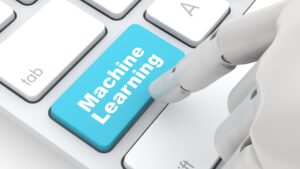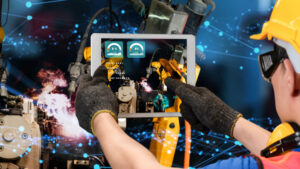
Innovation has always been a driving force in the manufacturing industry, fueling growth and propelling businesses forward. And while traditionally, innovation was the realm of highly skilled engineers and developers, a new wave of change is sweeping through the manufacturing sector. Enter the era of citizen developers, a term used to describe individuals without formal coding backgrounds who are taking the lead in creating innovative solutions. These modern-day catalysts are unlocking the potential of technology, transforming manufacturing processes, and revolutionizing the industry from within. In this article, we will explore the impact of citizen developers in manufacturing, how they are driving change, and the benefits they bring to the table. So, buckle up and get ready to discover how these unsung heroes are reshaping the future of manufacturing through their creativity, resourcefulness, and determination to push boundaries.
The Role of Citizen Developers in Driving Innovation
Citizen developers are individuals within an organization who possess a deep understanding of their specific domain and have the ability to leverage low-code or no-code platforms to create software applications or automate processes. They may come from various backgrounds, such as operations, quality assurance, or even marketing, but what sets them apart is their passion for finding innovative solutions to address business challenges.
These citizen developers act as a bridge between the IT department and other teams within the organization. They have a unique perspective that allows them to identify inefficiencies, bottlenecks, and opportunities for improvement. By empowering these individuals to develop their own applications, manufacturing companies can tap into a vast pool of talent and knowledge that may have previously gone untapped.
The rise of citizen developers is a response to the increasing demand for agility and responsiveness in the manufacturing industry. With the rapid pace of technological advancements, traditional software development methods can often be slow and rigid. Citizen developers, on the other hand, can quickly prototype and iterate on solutions, enabling companies to adapt to changing market conditions and stay ahead of the competition.
Advantages of Embracing Citizen Developers in the Manufacturing Industry
The impact of citizen developers in the manufacturing industry goes beyond just driving innovation. There are several advantages to embracing this new wave of change:
1. Increased Efficiency and Productivity
Citizen developers have an intimate knowledge of the processes and pain points within their respective domains. By empowering them to create their own applications, manufacturing companies can streamline workflows, automate repetitive tasks, and eliminate bottlenecks. This leads to improved efficiency and increased productivity across the organization.
2. Cost Savings
Hiring external developers or relying solely on the IT department for all software development needs can be costly. Citizen developers provide a cost-effective alternative, as they can develop applications without the need for extensive coding knowledge. By leveraging low-code or no-code platforms, manufacturing companies can reduce development costs while still achieving their desired outcomes.
3. Faster Time-to-Market
In today’s fast-paced manufacturing landscape, speed is of the essence. Citizen developers can rapidly prototype and iterate on solutions, enabling companies to bring new products and features to market faster. This agility gives manufacturing companies a competitive edge and allows them to respond quickly to changing customer demands.
Challenges and Considerations for Implementing Citizen Development in Manufacturing
While citizen developers bring significant benefits to the manufacturing industry, there are also challenges and considerations that organizations need to address:
1. Security and Governance
Allowing employees to develop applications without formal coding backgrounds raises concerns around security and governance. It is essential for organizations to establish clear guidelines and policies to ensure that citizen-developed applications meet security standards and adhere to regulatory requirements. This may involve implementing proper access controls, conducting regular security audits, and providing training on secure development practices.
2. Skills and Training
While citizen developers do not require extensive coding knowledge, they still need to possess a certain level of technical proficiency. Manufacturing companies must invest in training programs to equip these individuals with the necessary skills to develop applications effectively. This may include providing access to learning resources, organizing workshops, or partnering with external training providers.
3. Collaboration and Communication
Effective collaboration and communication between citizen developers and the IT department are crucial for success. It is essential to establish channels for sharing knowledge, best practices, and feedback. Regular meetings and cross-functional teams can help foster a culture of collaboration and ensure that citizen-developed applications align with the organization’s overall technology strategy.
Tools and Technologies for Empowering Citizen Developers in Manufacturing
To empower citizen developers in the manufacturing industry, organizations need to provide them with the right tools and technologies. These tools should be user-friendly, intuitive, and require minimal coding knowledge. Here are some examples of tools and technologies that can enable citizen development:
1. Low-Code Platforms
Low-code platforms allow citizen developers to create applications using visual interfaces and pre-built components. These platforms abstract away the complexities of traditional coding, making it easier for individuals without coding backgrounds to develop applications.
2. No-Code Platforms
No-code platforms take citizen development a step further by eliminating the need for any coding whatsoever. These platforms enable users to build applications using drag-and-drop interfaces and pre-configured templates. No-code platforms are ideal for individuals with limited technical skills who still want to contribute to the development process.
3. Collaboration and Project Management Tools
Citizen developers often work in collaboration with other team members, including IT professionals and business stakeholders. Collaboration and project management tools, such as Jira, Trello, and Microsoft Teams, can facilitate communication, task management, and document sharing. These tools help streamline the development process and ensure that everyone is on the same page.
The Future of Citizen Developers in the Manufacturing Industry
As technology continues to evolve, the role of citizen developers in the manufacturing industry is only expected to grow. With advancements in artificial intelligence, machine learning, and the Internet of Things, citizen developers will have even more powerful tools at their disposal to drive innovation and transform manufacturing processes.
The future of citizen development lies in the ability to seamlessly integrate with existing systems and platforms. Manufacturing companies will need to invest in robust integration capabilities to ensure that citizen-developed applications can communicate and exchange data with other enterprise systems. This will enable a more cohesive and connected ecosystem where citizen developers can leverage data from various sources to create impactful solutions.
Additionally, the future of citizen development will require ongoing support and training. Manufacturing companies must create a culture of continuous learning and provide resources for citizen developers to stay up-to-date with the latest technologies and development practices. This investment in education and support will ensure that citizen developers can continue to thrive and contribute to the success of the organization.
Conclusion: Embracing Citizen Developers for a More Innovative Manufacturing Sector
Citizen developers are the unsung heroes of the manufacturing industry, reshaping the future through their creativity, resourcefulness, and determination to push boundaries. By embracing these individuals and empowering them with the right tools, technologies, and support, manufacturing companies can unlock innovation, drive efficiency, and stay ahead in a rapidly evolving landscape.
The impact of citizen developers extends beyond just creating innovative solutions. They bring a fresh perspective, bridging the gap between different departments and driving collaboration. With their intimate knowledge of specific domains, citizen developers can identify and address inefficiencies, ultimately leading to improved productivity and cost savings.
As manufacturing companies embrace citizen developers, it is crucial to address challenges around security, skills, and collaboration. By establishing clear guidelines, providing training, and fostering a culture of innovation, organizations can create an environment where citizen developers can thrive and contribute to the success of the business.
So, as the manufacturing industry continues to evolve, it’s time to unlock the potential of citizen developers and embrace their role in driving innovation. Together, we can reshape the future of manufacturing and unlock endless possibilities.



Made for production, manufacturing, and beyond:
Discover how NC-Vision can empower your citizen developers. Connect with our dedicated team members today to explore the possibilities.
We are committed to helping the manufacturing industry make the most of no-code software development. We offer a range of no-code solutions that enable companies to quickly and easily create custom solutions that are tailored to their needs. Our tools allow companies to create solutions faster, more cost-effectively, and with more customization than ever before.












